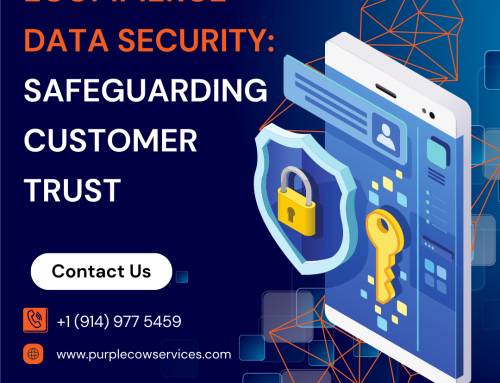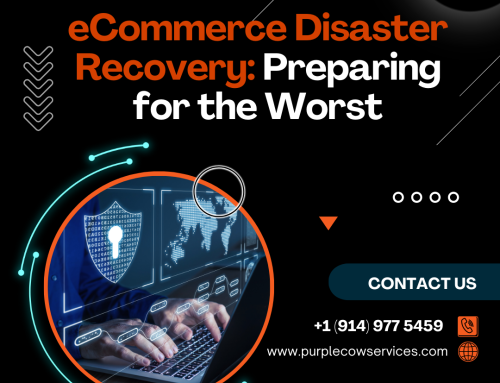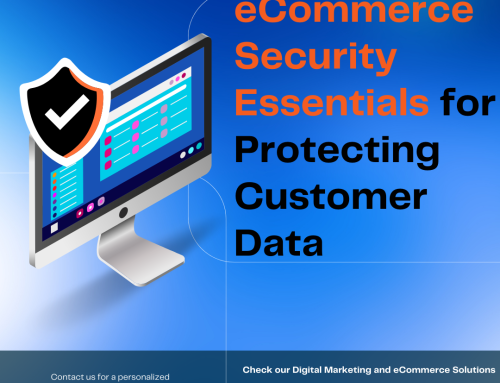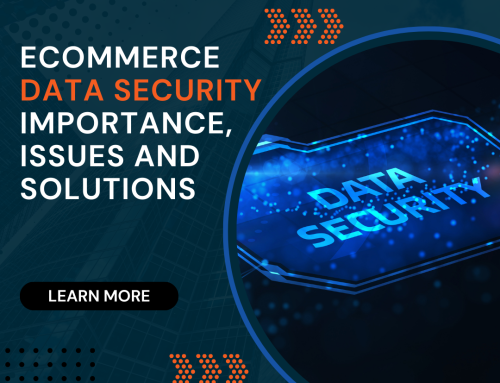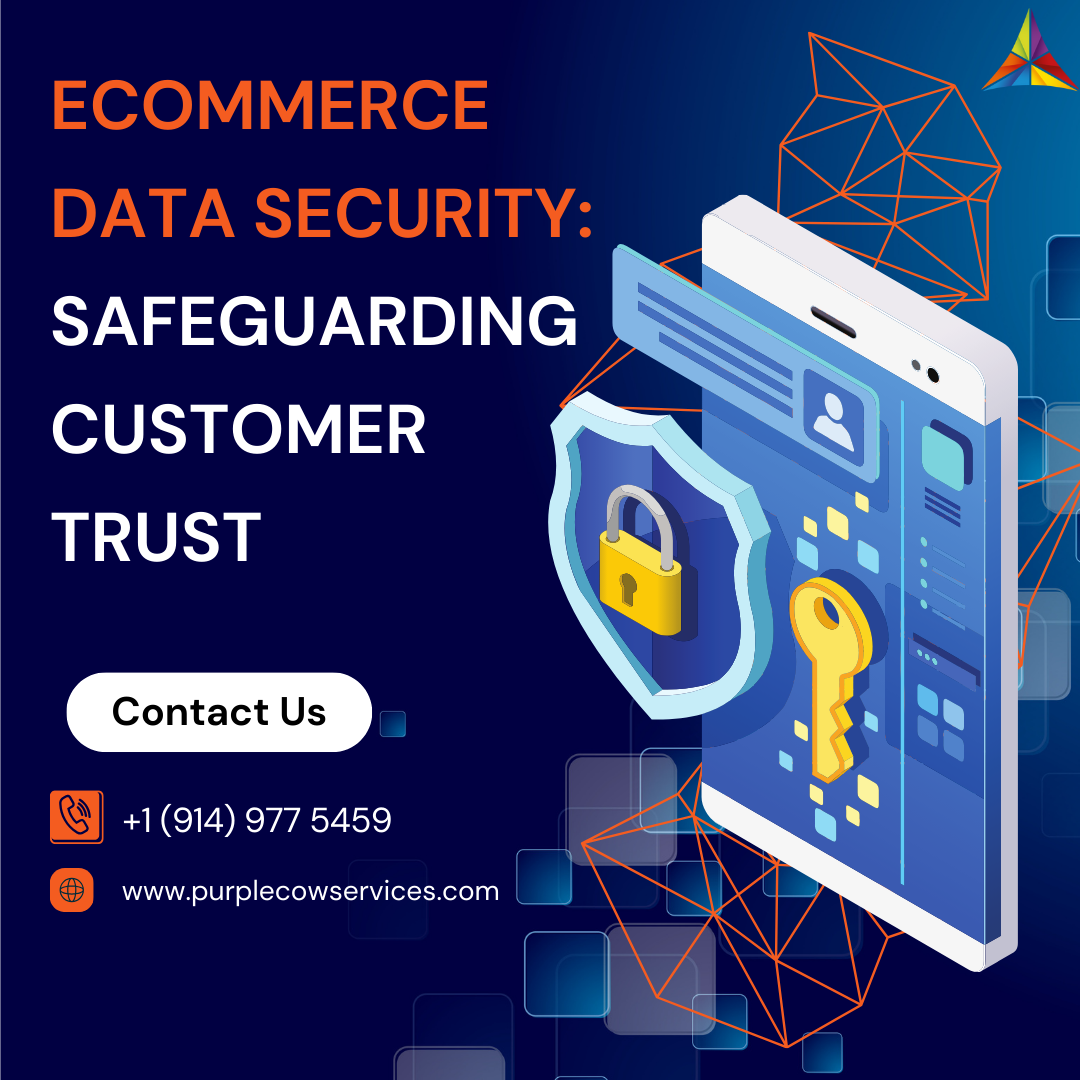In the realm of B2B eCommerce solutions, the paramount concern is the safety and security of transactions.
Share This Story, Choose Your Platform!
In this comprehensive blog post, we delve deep into the reasons why security matters significantly in B2B eCommerce transactions. From safeguarding sensitive data to mitigating risks associated with third-party integrations, understanding the critical role of security is essential for businesses navigating the complex landscape of online commerce.
Preserving Sensitive Data
The bedrock of secure B2B eCommerce transactions lies in the preservation of sensitive data. When businesses engage in online transactions, they exchange a wealth of confidential information, including financial data, client details, and proprietary information. Ensuring the confidentiality, integrity, and availability of this data is non-negotiable.
Failure to protect sensitive data can have severe consequences, ranging from financial losses to reputational damage. Security breaches and data leaks can undermine trust, leading to the loss of valuable clients. Therefore, robust security measures, such as encryption, secure sockets layer (SSL) certificates, and secure data storage, are imperative to safeguard sensitive information throughout the transaction process.
Fraud Prevention and Risk Mitigation
B2B eCommerce transactions are not immune to the ever-present threat of fraud. In fact, the stakes are often higher due to the substantial transaction values involved. Effective security measures are essential for fraud prevention and risk mitigation.
Implementing multi-factor authentication, real-time transaction monitoring, and anomaly detection systems are proactive steps that businesses can take to identify and thwart fraudulent activities. Moreover, the integration of artificial intelligence (AI) and machine learning algorithms can help identify patterns and anomalies, enhancing the overall security posture of B2B eCommerce solutions.
Regulatory Compliance
The regulatory landscape surrounding eCommerce is continually evolving. Businesses engaged in B2B transactions must navigate a complex web of compliance requirements, including but not limited to GDPR, HIPAA, and industry-specific regulations. Compliance is not merely a legal obligation; it is an ethical imperative.
Non-compliance can result in severe penalties and legal consequences. Therefore, businesses must prioritize security measures that align with regulatory requirements, such as data encryption, access controls, and data breach response plans. These proactive measures not only ensure adherence to the law but also demonstrate a commitment to the protection of client and partner data.
Third-Party Integrations: A Potential Weak Link
B2B eCommerce transactions often involve third-party integrations, such as payment gateways, logistics providers, and customer relationship management systems. While these integrations can enhance operational efficiency, they can also introduce vulnerabilities if not adequately secured.
Each third-party integration represents a potential weak link in the security chain. Cybercriminals may exploit vulnerabilities in these integrations to gain unauthorized access to sensitive data or disrupt transactions. To mitigate these risks, businesses must conduct thorough security assessments of third-party integrations, ensuring they adhere to robust security standards and practices.
Protecting the Supply Chain
The B2B supply chain is a complex ecosystem with numerous touchpoints, making it susceptible to security breaches. From suppliers to distributors, each entity within the supply chain plays a critical role in the security of B2B transactions.
Implementing supply chain security measures, such as secure communication protocols, vendor risk assessments, and real-time inventory tracking, is essential to protect the integrity of the supply chain. These measures not only safeguard transactions but also enhance transparency and trust among all supply chain partners.
Cybersecurity Education and Training
A chain is only as strong as its weakest link, and in the context of B2B eCommerce security, human error is often the weakest link. Cybersecurity education and training are indispensable components of a robust security strategy.
Employees at all levels must be educated about cybersecurity best practices, from recognizing phishing attempts to maintaining strong password hygiene. Training programs can empower staff to become vigilant guardians of data security, reducing the likelihood of human-related security breaches.
Continuous Monitoring and Incident Response
Security in B2B eCommerce transactions is not a one-time endeavor; it is an ongoing commitment. Continuous monitoring and incident response mechanisms are critical components of a proactive security strategy.
By implementing real-time monitoring tools and incident response plans, businesses can detect security breaches promptly and mitigate their impact. The ability to respond swiftly and effectively to security incidents is vital in minimizing potential damage and maintaining the trust of clients and partners.
Business Continuity and Disaster Recovery
While security measures aim to prevent security breaches, businesses must also prepare for the possibility of unforeseen disruptions. Business continuity and disaster recovery planning are integral to maintaining uninterrupted B2B eCommerce transactions.
Establishing redundant systems, off-site data backups, and failover procedures ensures that even in the event of a security incident or natural disaster, transactions can continue without significant disruption. These measures not only protect businesses but also reassure clients that their transactions will proceed smoothly under all circumstances.
Future-Proofing Security
The landscape of B2B eCommerce is continually evolving, and security must evolve with it. Future-proofing security entails staying informed about emerging threats, technologies, and best practices.
Businesses should invest in security research and development to adapt to the changing security landscape. This may include exploring emerging technologies like blockchain and advanced encryption techniques. By remaining agile and forward-thinking, businesses can maintain a robust security posture in the face of evolving threats.
Conclusion: Building Trust Through Security
The importance of security in B2B eCommerce transactions cannot be overstated. Beyond safeguarding sensitive data and mitigating risks, security is a cornerstone of trust. Businesses that prioritize security not only protect their interests but also build a reputation for reliability and integrity among clients and partners. In an era where data is a prized asset, security is the key that unlocks the doors to successful and trustworthy B2B eCommerce solutions.
Elevate your B2B eCommerce security with Purple Cow Services. Our expert-driven insights and cutting-edge strategies fortify your transactions, safeguard sensitive data, and mitigate risks. Trust us to build the trust your clients and partners seek. With Purple Cow, your business thrives securely in the dynamic world of B2B eCommerce. Your security, our priority!
Share This Story, Choose Your Platform!
In This Blog:
- Preserving Sensitive Data
- Fraud Prevention and Risk Mitigation
- Regulatory Compliance
- Third-Party Integrations: A Potential Weak Link
- Protecting the Supply Chain
- Cybersecurity Education and Training
- Continuous Monitoring and Incident Response
- Business Continuity and Disaster Recovery
- Future-Proofing Security
- Conclusion: Building Trust Through Security



